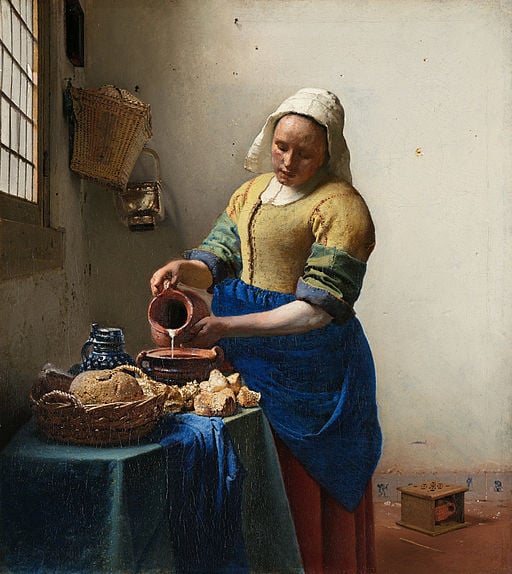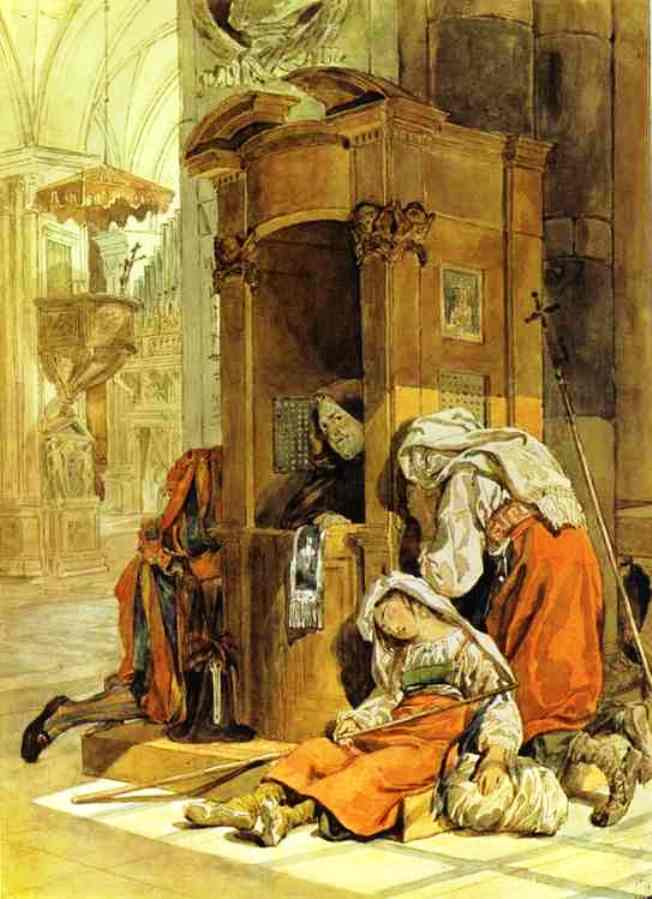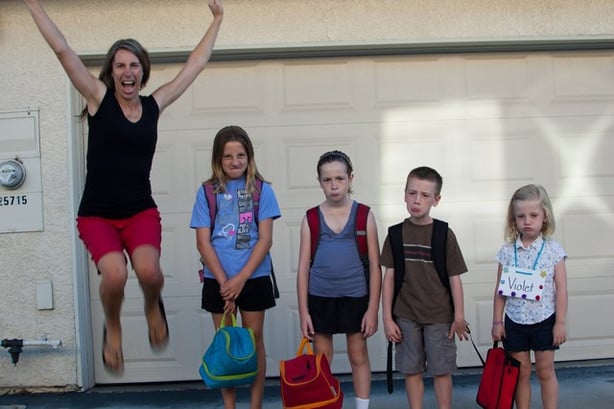The other day my sister called. She, my mom and my grandma were shopping for my kids, born and unborn, and she wanted to know if they could buy Charlotte a Disney princess book that plays music. I said, probably a little too vehemently, “No! No princess stuff!”
Now, I realize that this call itself may seem weird to some of you readers, let alone my answer. But here’s the deal with my husband and me: we are extremely particular when it comes to children’s toys. And since the time when our oldest was still gestating in my womb, we’ve been very vocal about that. We don’t allow toys that light up or make noise unless we have approved them first; we don’t allow toys that mimic radios, cell phones, computers, or televisions; we don’t allow handheld video games of any type; and we don’t allow either Barbies or anything that relates to princesses. And believe me, we are not above giving a toy back to the giver or even taking it away from our kids once it’s been given. (Unless, of course, the giver doesn’t know our rules. We’re not ingrates.)
These aren’t arbitrary rules; we really want our kids to grow up learning to use their imaginations. We also want them to be avid readers and to have attention spans that haven’t been shortened by the in-your-face, at-your-fingertips technology so available to children today. And generally our families don’t give us too much grief about those things. The princess rule, however, has been another matter entirely. That one has been as difficult to enforce as it has been to explain. I think a large part of that difficulty lies in the fact that it took me years to even understand the rule, much less agree with it and support my husband in it.
See, when I was pregnant with Sienna, my husband declared in tyrannical fashion that she would not be allowed to have any princess paraphernalia. No tiaras, no big poofy dresses, no princess dolls, no Disney princess merchandise, etc. Also, he decreed that no one was allowed to call her “princess.”
At the time, I was not only outraged by this, but was actually a little hurt. I considered this to be a sign that he didn’t love his daughter in a normal way, the way most fathers do. It didn’t make sense to me. Didn’t he think she was the most special, beautiful, wonderful thing ever to make its way into Creation? Didn’t he want her to grow up knowing how much he loved her, knowing that she was the absolute center of his life? Didn’t she deserve all this doting? Wouldn’t she always feel undervalued and unloved when she alone of all the other little girls in America was not called “princess”? Wouldn’t she always feel that her father just didn’t love her enough?
I was so angry about the whole thing that, in a rare occasion in our marriage, my husband had to remind me that I had promised to obey him…which I had, and which I did, very grudgingly.
But as the years wore on he no longer had to serve as the sole enforcer of this rule. The more I met other little girls and the more familiar I became with the culture that surrounds them in our day and age, the more I myself became disgusted with the pampering and preening that is so encouraged by the princess culture.
It took some time for me to really understand what is behind this culture and what exactly is so dangerous to children: but once I did, I began to see its effects everywhere I looked. From strippers to trophy wives, the vast majority of women in our culture are suffering from the debilitating effects of the princess culture.
One of the most sinister aspects of raising little girls with the idea that they are princesses is that it is a heresy; that is, a half-truth. Every little girl is unique and special and wonderful, just like every little boy, just like every person on the face of our planet. But the problem with letting little children believe that they are Somebody is that they very often forget that everyone else is Somebody as well.
In his fairy-tale “The Wise Woman, or the Lost Princess,” from The Gifts of the Child Christ, George MacDonald puts it this way:
As she grew up, everybody about her did his best to convince her that she was Somebody; and the girl herself was so easily persuaded of it that she quite forgot that anybody had ever told her so, and took it for a fundamental, innate, primary, first-born, self-evident, necessary, and incontrovertible idea and principle that she was Somebody…and the worst of it was that the princess never thought of there being more than one Somebody — and that was herself.
Consider the damage this does to a child in the long run. The most obvious effect is that the child risks growing up considering herself more important than anyone else. But more subtle and far more sinister is the fact that she will consider herself more important not through any virtue that she possesses, but simply by the very fact of her existence.
If a parent raises a little girl to believe that she is Somebody, i.e., a princess, simply because of who she is, some girls will never be motivated to be other than that. They will have no motivation to obtain an education; no motivation to perfect a skill; no motivation to improve their characters. Rather, they will believe that they do not need any of those things, because they already are…sorry for the repetition…a princess. Other little girls will make it their mission in life to prove to the world that they are what their parents have always assured them they are. They will seek to set themselves apart in whatever they attempt – athletics, business, music, art – for the sole purpose of showing the world that they are better than others. And that recognition, when and if it comes, will necessarily be hollow and unsatisfying.
Some little girls will grow to expect the same level of praise and devotion from others that they receive from their parents. When they don’t get it, they will blame the person failing to give that praise for not understanding, not seeing their true value. Any teacher or coach today is intimately familiar with this. There is a veritable revolving door of students and parents laying blame at the teachers’ feet for poor grades, accusing coaches of favoritism for playing athletes that deserve to be played for their talent as opposed to those who deserve to be played for their parents and their own high regard.
Eventually, every one of these little girls will become dissatisfied with everything she looks upon. With no desire to better herself or with that desire motivated only by the need for acclaim, she will never come to understand the joy of learning or the pleasure of work. She will spin her wheels in an endless cesspool of vanity and idleness, dissatisfied with everyone and everything for contributing to her own unhappiness. After all, her own unhappiness couldn’t possibly be of her own creation, because she is a princess!
Take a look at the malaise that has afflicted the mothers of suburbia: prescription drug abuse, alcoholism, adultery, rampant depression…all of these are symptoms of deep and profound problems in the modern woman’s relationship with the world. We (and I say we, because I battle it as much as the next woman) feel that the world owes us something, that every problem we have is due to some terrible injustice being done to us.
Popular culture has only contributed to this problem. Disney in particular reigns supreme in the encouragement of this culture. Take The Little Mermaid, one of the worst movies with the best soundtracks ever made. Consider the character of Ariel. A genuine princess, complete with a king for a father and a kingdom of doting mer-people, yet she wants to live on land. Why? Well, that doesn’t really matter, does it? She just wants to. And that’s a good enough reason to turn her back on everyone who loves her and resort to desperate measures with no thought for the consequences her actions will have on anyone else, including her poor little guardian who is nearly cooked in the process of trying to protect her! Outrageously, she suffers no consequences. Her father, selfless and loving father that he is, is willing to give his life in exchange for hers. Her prince, a typical lovestruck boy, is willing to risk drowning, shipwreck, and the wrath of a disgusting octopus-witch to save her life. Meanwhile, Ariel flails around in true damsel-in-distress fashion, horrified by the mean, wicked witch. There’s never an apology, never a moment when she realizes that this is all her own doing. Instead, by sheer luck, things turn out well. Ariel gets everything she wanted in the beginning without ever having to admit, or even realize, what her blind selfishness nearly did to all those she claimed to love. And her father and the mer-people wave her off into the sunset…because after all, she’s a princess.
Well, I don’t want my daughter to be that kind of a girl. First and foremost, she’s simply not a princess. In point of fact, a princess is the daughter of a king, and Sienna is the daughter of a poor graduate student. Second, while she is certainly special to her family and to God, in the eyes of the world she’s just another four year old. If she truly wants to become Somebody, to distinguish herself from the millions upon millions of other souls in the world, then she needs to work hard at it, and she needs to choose work that is worth doing for its own sake. She has no innate gift that makes her more, or better, and the sooner she realizes that, the better a person she will become. Third, I don’t want her to grow up dissatisfied with the world. The world is a beautiful place, full of wonder and delight, but she will never be able to recognize the beauty of the world if she can’t look past herself.
It may seem cruel to other parents, and it’s certainly been hard to come to terms with this myself, much less explain to family, but I don’t want my child treated as if she’s any different than the billions of children who have come before her. The truth is, she isn’t. And until she learns that, she’ll never truly be at peace with herself or the world.











